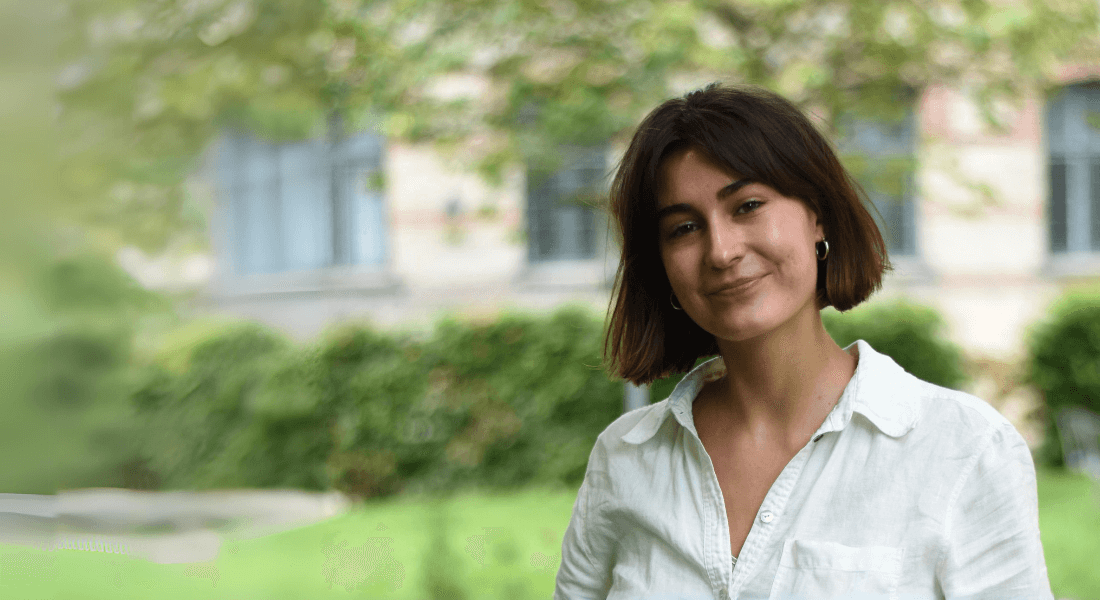Juliette Nicolaï: Conducting applied research in water, sanitation and hygiene programs in Togo and Kenya
Meet Juliette Nicolaï, a Research Assistant at the Global Health Section, University of Copenhagen. In this spotlight, Juliette shares her experience conducting applied research in collaboration with the NGO Plan International to enhance their water, sanitation and hygiene (WASH) programs in Togo and Kenya.

Tell us about your research
As a research assistant at the Global Health Section, I’ve been collaborating with the NGO Plan International on two research projects focused on strengthening water, sanitation and hygiene (WASH) systems in low-income settings.
The first project involved an exploratory study on the challenges of implementing WASH programs in villages across the Plateaux region of Togo. We explored the sustainability of hygiene behaviour changes, the inclusion of marginalised groups in community water management and the resilience of sanitation facilities to climate change, among other key issues.
Currently, I am conducting a scoping review to identify innovative approaches for climate proofing WASH systems in the Kakuma refugee camp, located in Turkana, Kenya.
Why is this research important?
WASH services are fundamental to public health and closely linked to socioeconomic development. Without reliable access to these services, communities are at higher risk for infectious diseases and malnutrition.
In Togo, diarrheal diseases remain one of the leading causes of death among children under five, despite being both preventable and treatable.
In Turkana, environmental and climatic pressures are increasingly jeopardising the sustainability of WASH systems. This research is important because it aims to provide actionable insights that could support the development of climate-resilient WASH programs for the Kakuma refugee camp and its surrounding host communities.
What excites you about your work?
What excites me the most is the opportunity to collaborate with a diverse range of partners and address pressing, real-world problems through research. I enjoy working with international, cross-sector teams and the enriching exchange of perspectives and ideas that comes with it.
I also find it very rewarding to see our research efforts translate into tangible improvements for organisations like Plan International, particularly when the work directly benefits communities.
Which achievements do you hope to see within your research field 10 years from now?
I believe there is a significant potential for further collaboration between NGOs and academic researchers to advance global health. NGOs offer critical insights into local needs and contexts, while academics bring valuable theoretical and methodological expertise. I hope to see more partnerships of this kind in the future, leading to research that is both impactful and highly relevant to the communities it aims to serve.
What advice do you have for junior researchers in global health?
I would strongly encourage junior researchers to engage in fieldwork whenever possible. Field experience is invaluable for both professional and personal growth. During my visits to Togo and Kenya, I had the opportunity to interact with local communities and gain firsthand insights into their views and experiences. These encounters enhanced my cultural sensitivity and adaptability— skills that are crucial for anyone in the field of global health.
What is your favourite source of global health inspiration and knowledge?
I’ve been following global health topics through podcasts such as TED Health, Health Check, and Science Vs, which help me stay informed about recent developments and medical breakthroughs.
I also find documentaries to be a powerful medium for raising awareness and humanising global health challenges. For instance, “Silent Pandemic: The Global Fight Against Antimicrobial Resistance” by Michael Wech, which I watched during the Global Health Film Days, deeply impacted me and opened my eyes to the severity of AMR crisis.
Contact
Juliette Nicolaï
Research Assistent, Global Health Section
juliette.nicolai@sund.ku.dk
